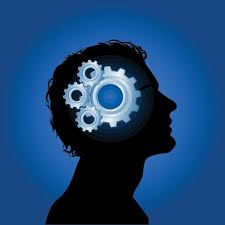
Free Will or Predestination?
Edip Yuksel
31 July 2012
www.19.org
From Quran a Reformist Translation:
57:22 No misfortune can happen on earth, or in yourselves, except it is decreed in a record, before We bring it about. This is easy for God to do.*
57:23 In order that you do not despair over anything that has passed you by, nor be exultant of anything He has bestowed upon you. God does not like those who are boastful, proud.
Edip Yuksel’s Note:
057:022-23 Proving the existence of free will is philosophically and scientifically impossible. Considering Gödel’s incom-pleteness theorem, it is impossible to eliminate axioms in axiomatic deductions. The assertion, “I have freedom of will” is not only nonfalsifiable, but also contradicts the deterministic laws governing matter and energy. As Nietzsche and Blanchard argued, it might be impossible to predict the interactive motion of hundreds of billiard balls, yet the motion of each ball depends on the mass and velocity of the ball colliding it. The motion of all balls depends on the motion of the first ball, and its motion depends on the angle and kinetic energy of the cue, which passes it to the balls during the impact. Sartre and other atheistic existentialists assumed the existence of freedom of will by asserting that “existence preceded essence” yet they never explained why one egg ended up with a snake while another with a bird; they ignored the fact that there could not be existence without essence.
Nevertheless, if there is freedom of will, it cannot be possible without an omnipotent, the greatest paradox-solver God. Without God, there is no justification for believing in one’s freedom in a world where every atom and molecule works in a deterministic way. Does the human brain function according to the quantum laws governing quarks? So far, there is no scientific evi-dence showing such a relationship. Mus-lims cannot be accused of being fatalistic; to the contrary, freedom of will is only possible with the existence of God, and muslims can only be accused of believing in freedom of will. See 6:110; 7:15,30; 13:11; 18:29; 42:13,48; 46:15; 57:22.
However, acceptance of freedom of will based on divine communication creates other logical problems or paradoxes. Leaving aside the uncertainty principle and speculations related to quantum physics, it seems impossible to assert the freedom of an agent who did not even choose his or her genetic makeup, the time, the space, and the conditions where he or she would be born. Obviously, this is a paradox, since it is impossible to choose existence or the qualities of existence without having an existence or the qualities for choosing qualities! In other words, the paradox of freedom of will is triggered at the moment of creation. Did God ask us whether to give us freedom of will and subject us to a test? If yes, then how could we have the freedom to choose or reject freedom, if we did not have it in the first place? If no, then, how can we have freedom of will, while we were forced to have it in the first place?
Though believing that we humans have freedom of will is one of the paradoxes most difficult to digest, I acknowledge it because of the proven book (18:29; 57:22).
God, as a demonstration of His creative powers, chose to test the results of creating a being with the ability to freely choose its own destiny (18:29; 6:110; 13:11). God downloaded His ruh (revelation/ information/logic) to the prototypical human that would provide him with innate rules of reasoning to distinguish falsehood from truth, bad from good (15:29; 32:9; 38:72;). Messengers and books containing ruh were only a bonus mercy, mere reminders of the facts that could be discovered by reason (2:37-38; 10:57; 11:17; 16:89; 21:107; 29:51; 16:2; 36:69; 37:87; 39:21; 42:52; 58:22). After the two human prototypes failed the first test (2:11-27), God created life and death on this planet to give another chance, to reform ourselves, this time subjecting billions of individuals inheriting and operating the same basic program to the same test (67:2). After letting the program run for a period, an individual is deemed accountable to God (46:15). God decided to punish those who freely choose a path contradictory to its original program as they corrupt it through false ideas and actions (2:57; 4:107; 6:12,20,26,110; 7:9,30,53,177; 59:19). The programs that are infected with viruses will experience a regretful stage in a quarantine called Hell (Hell and Paradise are allegories: 13:35; 17:60; 37:62-64; 7:44-50). In this stage the corrupt programs and their chief infector (Satan) will be penalized (7:11-27; 38:71-88), and then they will altogether be annihilated there (87:13). The only virus that will not be healed on the day of Judgment is the virus that creates a schizophrenic personality, a personality that submits itself to others besides God, a personality that does not free itself from false gods thereby alienating itself from its origin, that is God (4:48,116).


